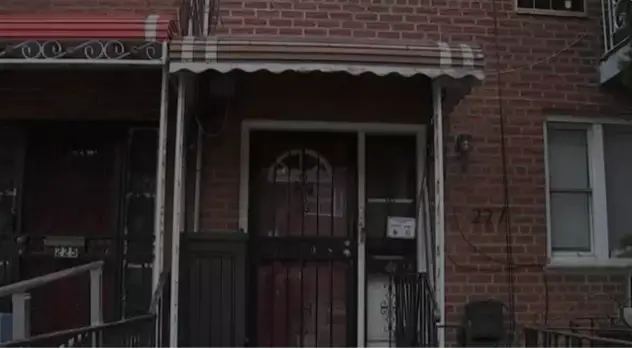Filmore Brown has lived in his Brooklyn home since 1996 and paid off his mortgage in 2019, but now, he lost his home due to an unpaid water bill of about $5,000 he says he wasn’t even aware about.
The city sold the unpaid bill to a group of investors, allowing them to pursue foreclosure on the property.
According to Brown, he never received any notice about the bill or the legal proceedings. The thing is, however, that he’s living on the top floor of a three-unit building and rents out the lower apartments to other people and the New York City’s Department of Finance claim notices were sent to his home and someone was even handed court documents stating the impending foreclosure in November 2020. Brown, however, never received them.
According to Newsweek, the unpaid water bill of $5,057.71 dated back to around 2019.

Brown only learned that his $800,000 property was put on sale after a group of contractors appeared in the middle of the night attempting to get into the house, for which they had legal right.
Despite the water bill being worth less than 1 percent of Brown’s home, the trust proceeded with the foreclosure on his property to settle the debt.
“He said he didn’t know anything about this and I believe him,” said Brown’s attorney, Alice Nicholson.
Since the debt went to the trust, Brown has paid thousands of dollars in current taxes and water bills. “He just paid a water bill this year in the thousands of dollars, so it’s just heart wrenching,” said attorney Yolande Nicholson.
She also explained that once his old bill was placed in the trust, it no longer appeared on his current bills because the two systems aren’t connected.
“There needs to be some type of notification that there’s another bill out there that needs to be paid.
“There needs to be more done to make sure that these hardworking older people who paid off their mortgage and have fixed incomes don’t get into that kind of rut.”
Brown feels like his home was stolen from him, saying that he doesn’t want “anybody to go through what I’m going through,” adding: “I cannot eat, I cannot drink, and I cannot sleep.”
A spokesperson of the Department of Finance said in response, “Our goal is never to see a homeowner lose their property. Last year, we implemented reforms to specifically prevent unfortunate situations like this from happening by giving property owners more time, information, and resources to resolve their debts.
“For this year’s lien sale, we strengthened our outreach efforts to make sure we reached as many owners as possible, working with non-profit groups and other City agencies to conduct door-to-door visits, direct phone calls, and other targeted communications.
“Homeowners have several options for resolving their debt with the City, whether it’s related to property taxes, water and sewer charges, or other municipal charges. This includes property tax exemptions for eligible residents, flexible payment plans, and other forms of assistance.
“Our priority is to connect property owners with these resources early, so they can protect their homes and avoid the lien sale altogether.”
Brown’s story highlights a broader problem affecting thousands of homeowners.
In July, the Consumer Financial Protection Bureau (CFPB) announced that it wants mortgage lenders to work with homeowners rather than foreclose on their homes, according to Newsweek. The proposal, which has not yet been finalized, aims to simplify the process and ensure borrowers have better access to information about their debt.
“When struggling homeowners can get the help they need without unnecessary obstacles, it is better for borrowers, servicers, and the economy as a whole,” CFPB Director Rohit Chopra said in a statement.
“The CFPB’s proposal would reduce avoidable foreclosures and make the mortgage market more resilient during future crises.”
Please SHARE this article with your family and friends on Facebook.
Bored Daddy
Love and Peace


